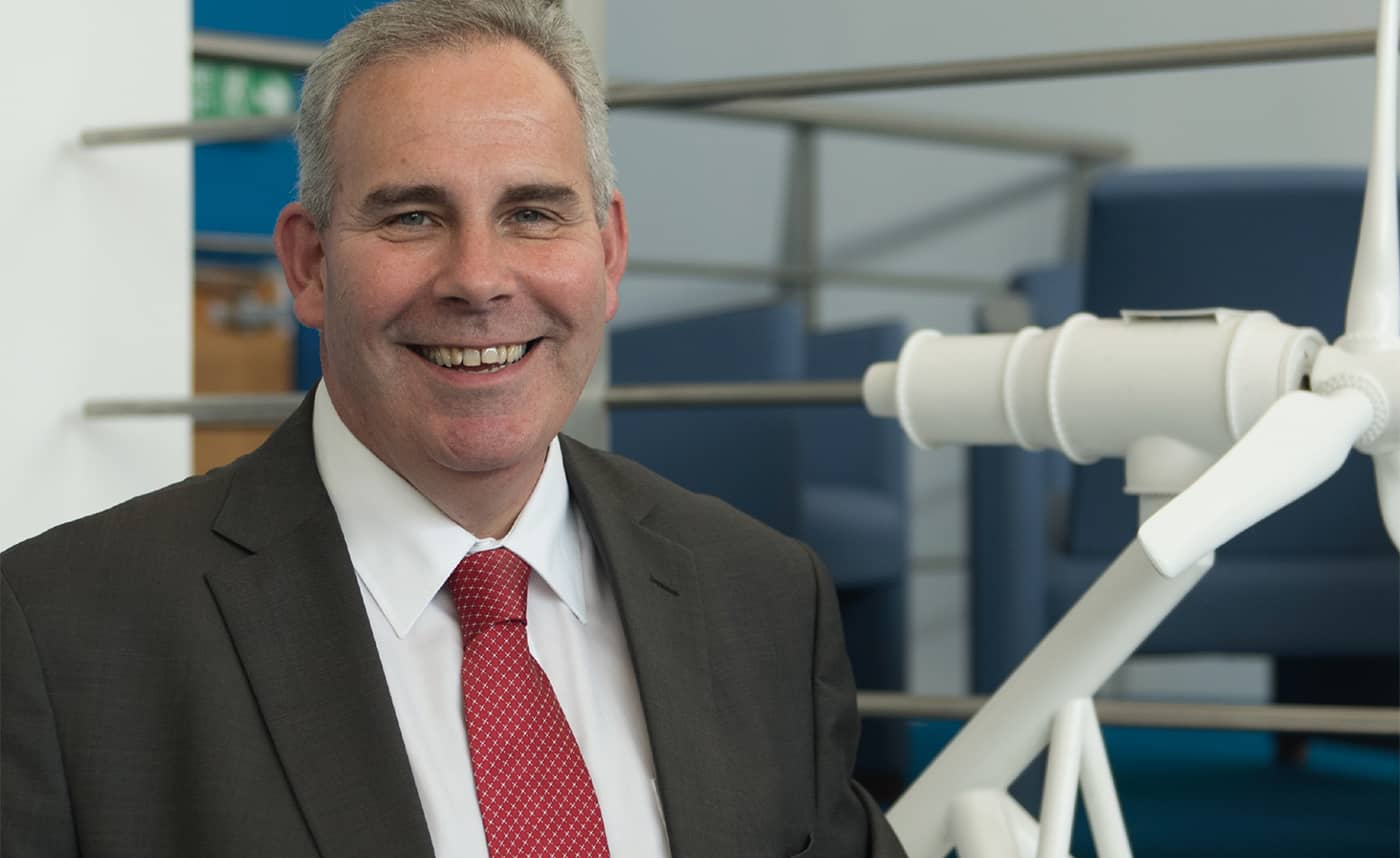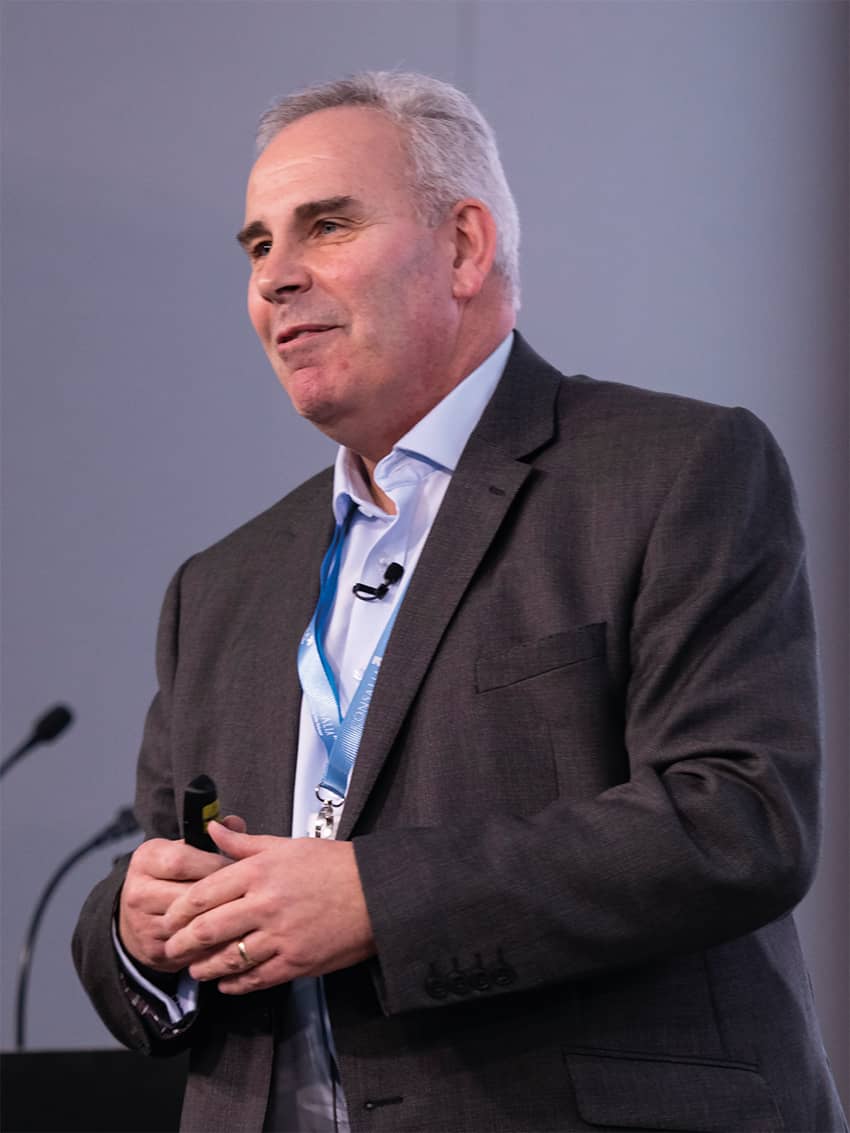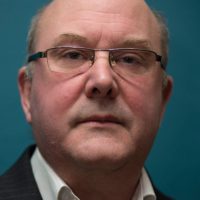Transformation is emotional
13th December 2019 | Nick de Cent
David Norris explains how participation in the Leading Sales Transformation Masters programme is reinforcing an ethos of continuous improvement at industrial giant SKF.

Like most companies, bearings, seals, lubrication and rotating equipment systems specialists SKF operates an annual performance review system. At an individual review, David Norris, Sales Director United Kingdom & Ireland, presented his manager with an outline development programme in which he would have liked to participate. From the subsequent discussion an opportunity to participate in the Consalia and Middlesex University’s Masters in Leading Sales Transformation programme was identified. From this initial discussion on personal development, Norris and five colleagues in his regional management group are now well into the second year of a journey of discovery.
Enthusiasm and commitment were key selection criteria for what is inevitably a taxing course. “The response I got from the organisation was extremely positive and supportive. It was emphasised to me the need to have someone motivated and enthusiastic to participate in this programme rather than having someone who was just doing this for the sake of doing a new programme. On my side I was really motivated to be a part of this experience and saw real benefits to be a part of this journey,” Norris explains.
Moreover, he was fortunate that two members of his UK management group and three colleagues across Europe were also selected for the programme. “I believe this has been an absolutely fantastic experience for all of us, both professionally and personally.”
Leading by example
Now a second cohort has joined the programme. “I think that’s a huge commitment from SKF on how we are acknowledging our need to transform and develop our people to a higher level to face the challenges in our business. It’s positive more of my colleagues who are heading up other countries in Europe, are now also on the programme. I think this shows strong and courageous leadership in that you’re saying to your organisation, ‘I’m not finished learning; I can still improve. If I can improve, you can improve, and we can improve together.’ That’s a really strong message to send to people, that the leadership acknowledge, ‘Hey, this is good. We can learn new things here that can make everybody better.’”

But why heap all this extra pressure on yourself when you are already in a senior position? “A lot of people asked me: ‘Why you? You’re a senior sales guy.’ Simply I want to make myself better. I want to make myself better as a salesperson, I want to make myself a better sales leader and I want to make myself better and more valuable to SKF. I really do think the minute you start losing the desire to develop yourself you start losing a little bit of an edge in how you work. I saw this as a fantastic vehicle and opportunity to improve.
“I didn’t take this commitment on board at this particular stage in my life to make big career moves. I did it to improve my performance, improve my effectiveness, improve my contribution and do things that can help develop and inspire my own team. I remember talking to Phil [Squire] about my motivation and he still reminds me of my answer. He said: ‘What was your motivation?’ And I just said: ‘I’m not done yet. I’m not done developing myself. I’m not done developing my business. I’m not done developing my people.’ And the minute you feel you’re done, okay, well, don’t do these things. And maybe if when you reach that stage, you should step aside for someone else.”
Cross-fertilisation and cascading ideas
With so many colleagues on the programme, there is significant opportunity for cross-fertilisation. “It’s absolutely brilliant. There’s six of us on this programme, six SKF guys at the moment on my cohort. We have all done three modules. That’s 18 projects with a common theme and, if you take the most recent one – coaching – there are six fantastic projects now on how we can improve our way of coaching. That’s got to be a really great opportunity for us to go forward and we are now actively cascading it.
“I am meeting our HR people here in the UK and regionally to talk specifically on developing the coaching activities that we’re doing, which is fantastic because that fits perfectly with the last module. So, the opportunities to replicate best practice and learn how to improve are absolutely tremendous.”
I’ve learned a huge amount about myself and how I can improve my contribution and performance. I’ve learned about my colleagues.
Why do a Masters?
Norris stresses that it is important to embark on the Masters for the right reasons. “I think first of all don’t do it unless you want to do it. Seriously, if you’re doing this just to impress people, forget it – because you’re doing it for the wrong reasons. The word ‘transformation’ has taken on a more significant meaning for me. If you really want to transform and improve, if you want to learn more about yourself, if you want to learn more about your team and your organisation, and if you want to think of ways that you can improve, change things and make things better, do a Masters.
“If you don’t want to do that, don’t enter this arena. It is very challenging. It’s also sometimes a little bit frightening. But I’m a huge promoter of this experience and I have thoroughly enjoyed it. I’ve learned a huge amount about myself and how I can improve my contribution and performance. I’ve learned about my colleagues.
And honestly, parts of it become very emotional. That’s very deep. That’s how deep you go when you start going into some of these things,” he concludes.
This interview was originally published in Consalia’s Alumni News.



